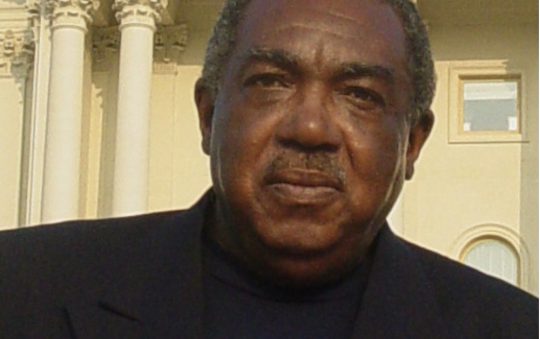
African American leaders in California are keeping a close eye on the commission drafting congressional, state Senate, state Assembly and Board of Equalization voting maps. They are concerned about the outcome of the redistricting process.
Last Wednesday, the California Citizens Redistricting Commission released the first draft maps of the redrawn lines for the state’s voting districts. By state law, the finalized versions of the new political districts have to be completed by Dec. 27.
But advocates like James Woodson, the policy director of the California Black Census and Redistricting Hub (CBCRH), are asking the commission to press pause and reevaluate the maps they have come up with so far. The CBCRH, also called “the Black Hub” is a statewide coalition focused on “racial equity” and “fairness” in the redistricting process.
“The Black Hub appreciates the commission’s hard work and its early release of the maps for public input. At the same time, the Black Hub is deeply concerned that the process for developing the maps has been rushed, inconsistent, and incomplete,” said Woodson. “It has resulted in maps that have ignored the interests of many Black communities and millions of residents in the state’s most populated areas.”
For example, draft maps released by the commission last month collapsed the only two congressional districts in Los Angeles County represented by Black U.S. Congressmembers, Maxine Waters (D-CA-43) and Karen Bass (D-CA-37), into one district. After advocates and activists complained about African Americans losing political power, the commission separated the single district it was proposing into two constituencies again. But because California lost one seat in the U.S. Congress due to an overall drop in the state’s population, according to
the U.S. 2020 Census numbers, advocates worry that it will cause a ripple effect, which will change the racial and political composition of districts across the state.
The “Black Hub” leaders and other advocates in the state are urging Black Californians to speak up and provide input to ensure their communities do not lose representation or resources.
“It’s not just about us losing political power. It’s also about us losing assets,” said Kellie Todd Griffin, a resident of the Los Angeles County city of Carson, where the number of Black residents accounts for more than 25 % of the city’s total population. Los Angeles County, where California is expected to lose one congressional seat, is home to about 40 % of African Americans in the state.
Griffin, who is an organizer and entrepreneur, is known in California’s political circles for her outspoken advocacy on behalf of Black Californians. She says with the Olympics coming to Los Angeles in 2028, there will be a lot of development and an increase in revenue for government and businesses in Carson. Redrawn political districts, she fears, could hurt her city and others nearby economically.
“When you look at the maps, you see that our congressional district in Carson has been attached more to Redondo Beach and Rancho Palos Verdes instead of being connected to cities like Long Beach and Compton and places like that,” Griffin said. “There is also an assumption that Blacks and other minorities in the area vote the same on issues. As we know, that is not always true. We have specific issues that affect us Blacks differently. So, we vote differently on them – from some criminal justice reforms to the Crown Act.”
One of the realities driving the leaders’ concern is the possibility that the Black vote in five different regions of California will be diluted.
“Rather than adhere to map priorities from BIPOC communities, we are concerned that, in an effort to prioritize all voices, some commissioners have mistakenly and unknowingly elevated voices from less diverse, affluent communities in the process, and at the expense of BIPOC communities,” said Woodson.
According to CBCRH, because the proposed maps chop up and split districts where African Americans live, Black political power will be diluted in Los Angeles County, San Diego County, the Central Valley, the Bay Area and the Inland Empire. To address the problem, they have submitted proposed maps to the redistricting commission that will protect Black political power and representation.
Another major concern is the compressed timeline on which the commission is working, which limits the time for citizens to influence the line drawing process. This year, due to pandemic-related federal delays, census data the commission relies on to redraw maps was delayed. Instead of its usual release in March, the U.S. Census Bureau did not provide that information until Sept. 21.
“The Black Hub is deeply concerned that the process for developing the maps has been rushed, inconsistent, and incomplete. It has resulted in maps that have ignored the interests of many Black communities and millions of residents in the state’s most populated areas,” said a statement released by CBCRH last week.
Every 10 years, California appoints a new redistricting commission after the U.S. Census. It is tasked with mapping or re-drawing the state’s electoral lines based on population shifts in the state population over the decade between census counts.







